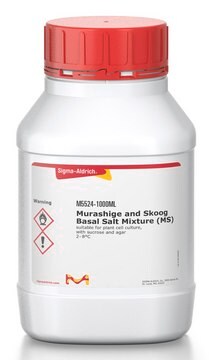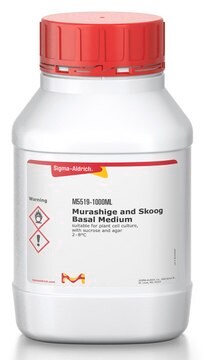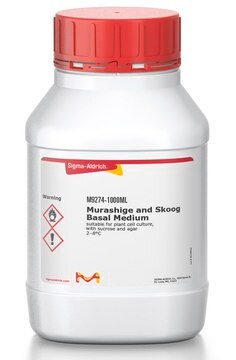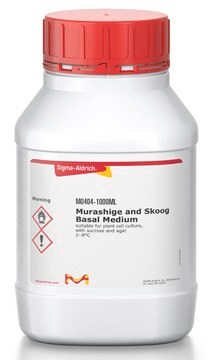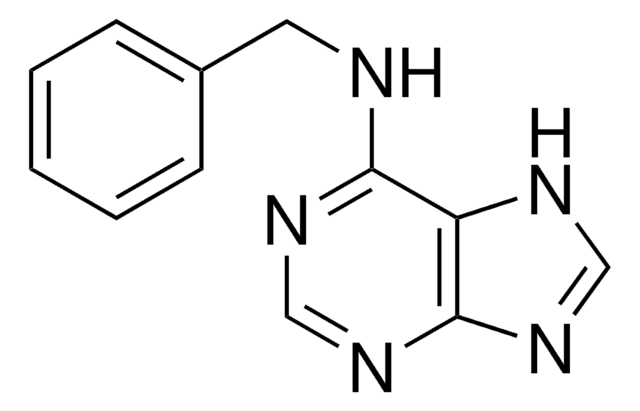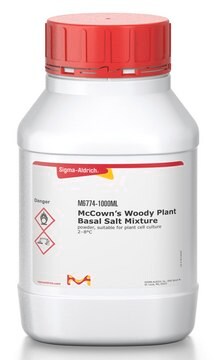M2909
Murashige and Skoog Modified Basal Salt Mixture
powder, suitable for plant cell culture
Synonym(s):
Murashige and Skoog Modified Basal Salt Mixture, w/o Ammonium Nitrate
About This Item
Recommended Products
form
powder
Quality Level
technique(s)
cell culture | plant: suitable
application(s)
agriculture
storage temp.
2-8°C
Application
- to promote root development for internode stem suckers
- to promote shoot growth for the calluses
- for low nitrogen (LN) treatment, for the growth of Arabidopsis thaliana
Formula variant
With the macro- and micronutrients described by Murashige and Skoog (1962).
Media Formulation
Preparation Note
Signal Word
Warning
Hazard Statements
Precautionary Statements
Hazard Classifications
Eye Irrit. 2 - Ox. Sol. 3
Storage Class Code
5.1B - Oxidizing hazardous materials
WGK
WGK 2
Flash Point(F)
Not applicable
Flash Point(C)
Not applicable
Regulatory Listings
Regulatory Listings are mainly provided for chemical products. Only limited information can be provided here for non-chemical products. No entry means none of the components are listed. It is the user’s obligation to ensure the safe and legal use of the product.
PRTR
Class I Designated Chemical Substances
ISHL Indicated Name
Substances Subject to be Indicated Names
ISHL Notified Names
Substances Subject to be Notified Names
JAN Code
M2909-PROC:
M2909-BULK:
M2909-10X1L:
M2909-2X5L:
M2909-10L-PW:
M2909-10L:
M2909-10L-LBL:
M2909-VAR:
M2909-1L:
Certificates of Analysis (COA)
Search for Certificates of Analysis (COA) by entering the products Lot/Batch Number. Lot and Batch Numbers can be found on a product’s label following the words ‘Lot’ or ‘Batch’.
Already Own This Product?
Find documentation for the products that you have recently purchased in the Document Library.
Customers Also Viewed
Our team of scientists has experience in all areas of research including Life Science, Material Science, Chemical Synthesis, Chromatography, Analytical and many others.
Contact Technical Service